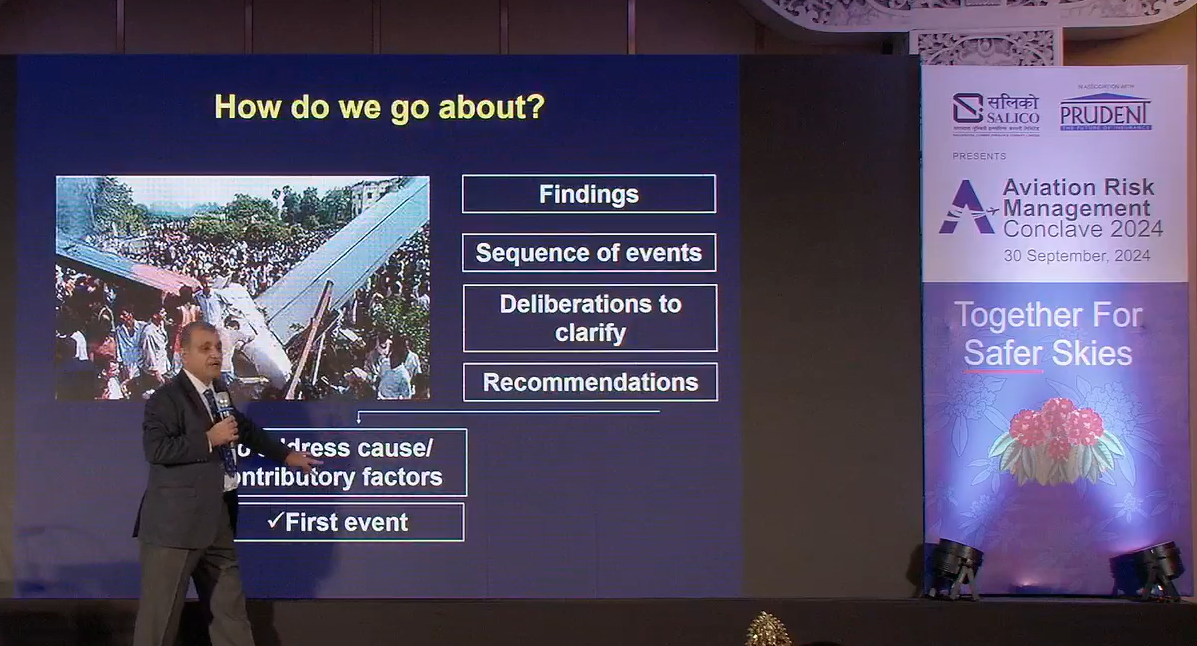Kathmandu: The Aviation Risk Management Conclave 2024, organized by Sagarmatha Lumbini Insurance (Salico) in association with Prudent Insurance Brokers, concluded on Monday at the Dusit Princess Kathmandu Hotel.
Presenting on human error factors, Aviation safety expert, Dr. Narindra Taneja, explained how human factors result risk for aviation safety. He urged the stakeholders to abide by the safety standards not just for formalities but for the safer skies. Aviation safety is at risk due to high human factor.
Dr. Taneja presented data showing that almost half of the air accidents are caused by human error factors. He said, ‘Based on careful analysis of past accidents, collective and continuous efforts should be made to identify and find out the cause of human error and prevent its recurrence in the future’. He expressed the view that despite the significant reduction in air accidents due to human error, more efforts should be made to improve.
According to the International Air Transport Organization, the fatality of aviation accident has reduced significantly. The risk of fatality has dropped to 0.03 per ten million flights in 2023 in comparison to 0.69 percent of 2005. In other words, when calculating on the basis of this percentage of risk, if a passenger travels daily by ship for 1,03,239 years, he will be at risk of an accident.
Anthony Frankel, General Aviation Head of Llyods Group, UK, expressed his concern over the increasing number of aviation accident in Nepal in recent months. Mentioning the number of aircraft accident during last 16 months, he said, Nepalese people are tolerant to safety failure. In the last 16 months Nepal skies witnessed 2 aircraft and 6 helicopter accident. He said, Its only Nepal where such large number of aviation fatality happened. Aviation fatality not only caused loss to money and human life but will also affect Nepalese economy through downfall in tourism.
Urging aviation professional to passionately take aviation safety as their job Frankel said, Passengers don’t just buy a ticket for travel, they entrust their safety in your hands. As a pilot, it is the responsibility of the pilot to make sure that all the safety standards are in place before flying the plane, he cannot get away with blaming others.
I used to suggest my friends which one operator to fly with, Frankel said, But now I am not in a position to suggest which operator is safe in Nepal because any operator’s fleet can crash here at any time. He said, Compromising aviation safety has resulted aviation accidents in Nepal. He suggested the Civil Aviation Authority to strictly punish those who compromise with the safety standard.
The conference underscores the importance of robust safety protocols and risk assessment in the aviation sector, aiming to foster a safer and more secure aviation environment.
The program was chaired by Chunkey Chhetry, the CEO of Sagarmatha Lumbini Insurance, the leading insurer providing insurance support for aviation industry in Nepal.










